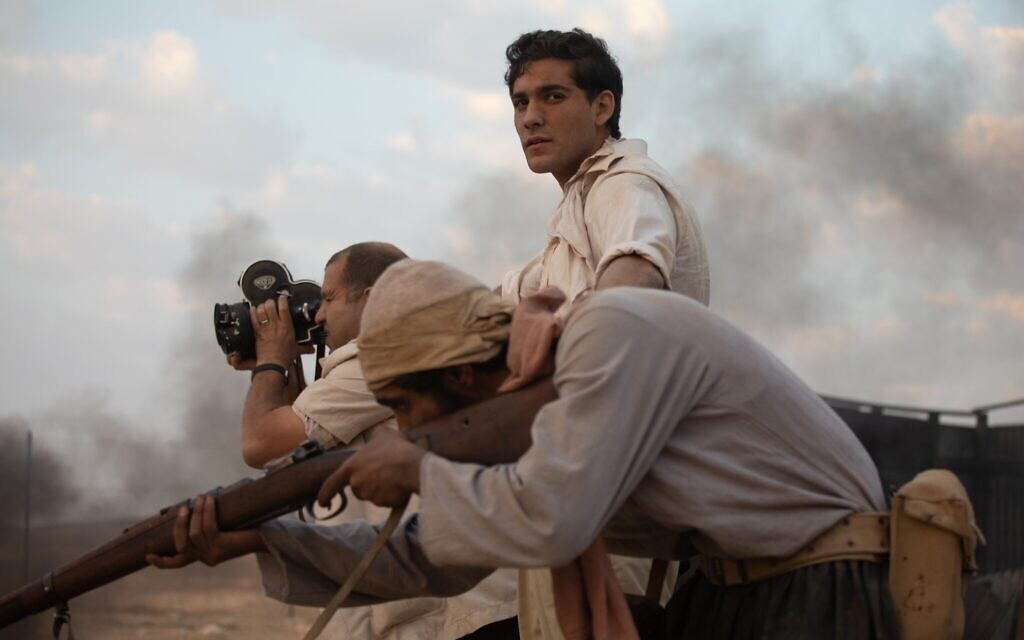Battling for Israeli independence
Avi Nesher tried to be fair to both sides’ stories in his film about a battle between a kibbutz and the Egyptians
When I call Avi Nesher, one of Israel’s most lauded filmmakers, he is hard at work on a new project, The Monkey House, but happy to stop for a Zoom chat about his most recent acclaimed feature, Image of Victory.
“It’s nice to take a break from a movie you’re doing right now and just think fondly of a movie you just finished,” he says affably.
Made against the odds during the Covid pandemic in Israel (“We had no insurance and the whole investment could have gone down the drain”), the film is a complex and passionate recounting of when kibbutz Nitzanim stood against Egyptian forces during the War of Independence. Outgunned and outnumbered, the kibbutz eventually surrendered.
Get The Jewish News Daily Edition by email and never miss our top stories Free Sign Up
Despite fighting bravely, the captured survivors were smeared as traitors by the then cultural officer of the Givati Brigade, Abba Kovner – a mark which stuck.
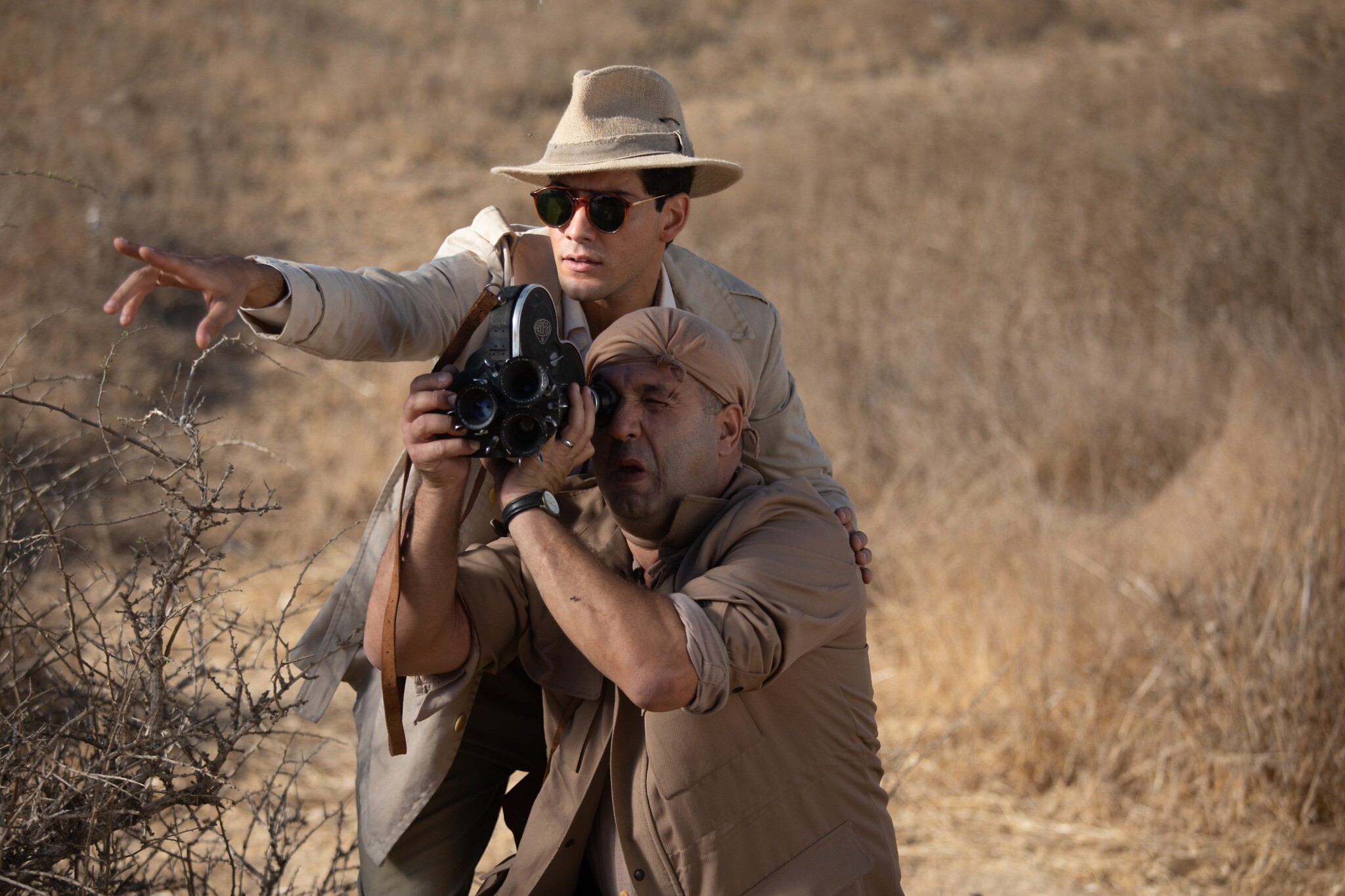 Nesher, who was born four years after the War of Independence, had not heard of the battle when the producer Ehud Bleiberg, whose father, Yerah, was one of the Israeli POWs, came to him with a script. He was on a mission to correct an injustice, “which is something I respected”, says Nesher. However, the story as it was told seemed too black and white.
Nesher, who was born four years after the War of Independence, had not heard of the battle when the producer Ehud Bleiberg, whose father, Yerah, was one of the Israeli POWs, came to him with a script. He was on a mission to correct an injustice, “which is something I respected”, says Nesher. However, the story as it was told seemed too black and white.
“I didn’t think it was meaty enough for a feature film in 2022. We don’t live in a time when we have good cowboys and bad Indians anymore. The only clear-cut heavies are the Nazis. But in our modern era, war has two sides, and you have conflicting narratives.”
Bleiberg “was very persistent”, Nesher recalls, which for him is the sign of “a really good producer”. He dug deeper into the Nitzanim story, and discovered that a young Egyptian journalist and aspiring filmmaker, Mohamed Hassanein Heikal, had been embedded with the Muslim Brotherhood, and there was newsreel of the battle.
“The fact that there were cameras there in the Negev really blew my mind. I thought it was really interesting vis-a-vis the era we live in: an era where he who controls the story, who controls the narrative, will win eventually. Hassanein’s presence gave me the proper perspective to tell the story.”
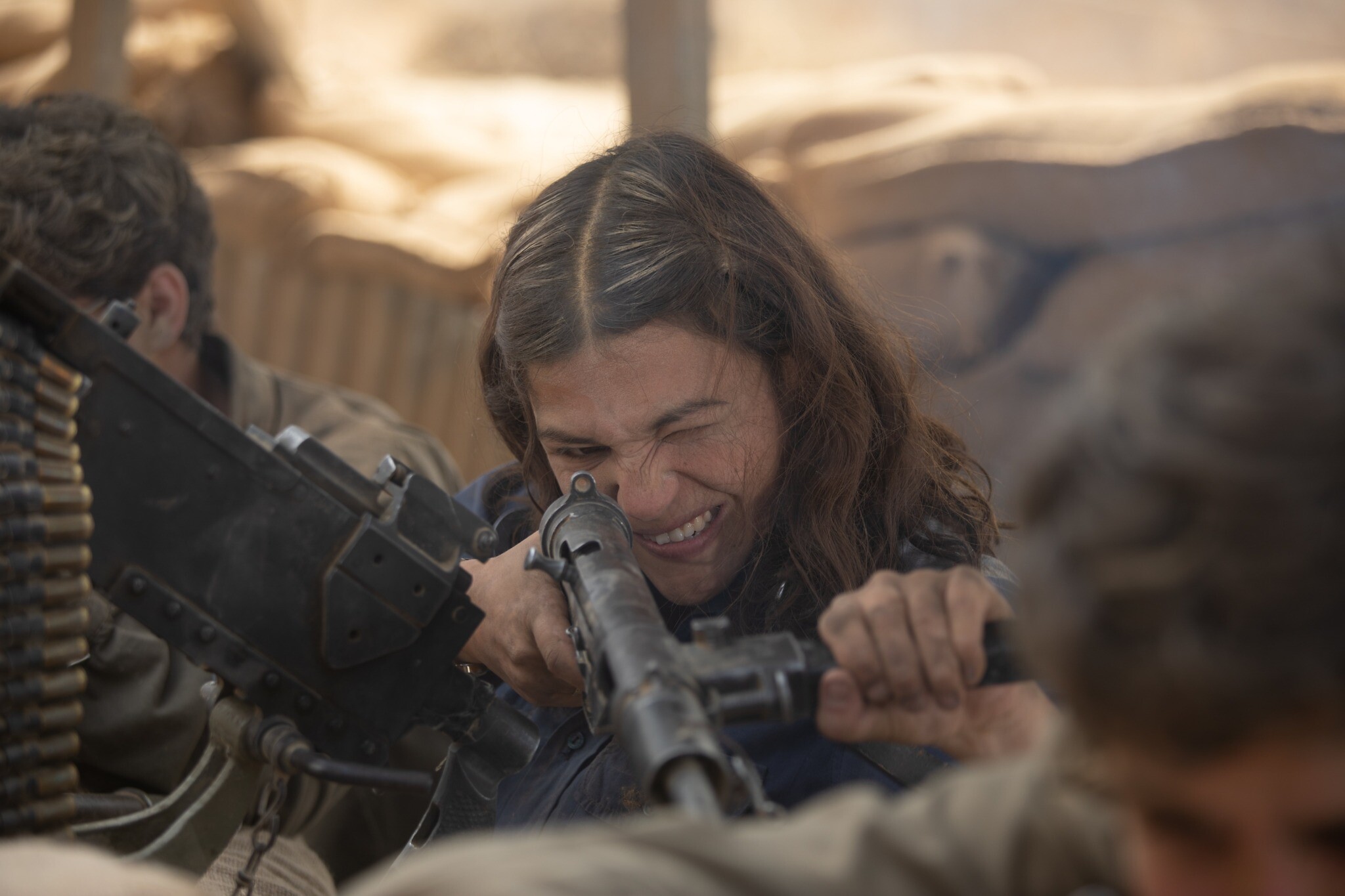
He wrote a new screenplay and the film now cuts even-handedly between the kibbutz members, foremostly Mira Ben Ari (Joy Rieger), a woman who sent her son away to safety and stayed to fight (“She was a feminist before anybody even thought about the term; she was a free spirit,” says Nesher” ), and the Egyptians, where Hassanein (Amir Khoury) is in a creative struggle with King Farouk’s demand for a triumphalist image of victory.
The real Hassanein was 24 years old, the same age Nesher was when he made his popular, genre-defying debut feature, The Troupe, and his attempt to portray a more humane version of war plays like a self-reflexive commentary on the director’s storytelling.
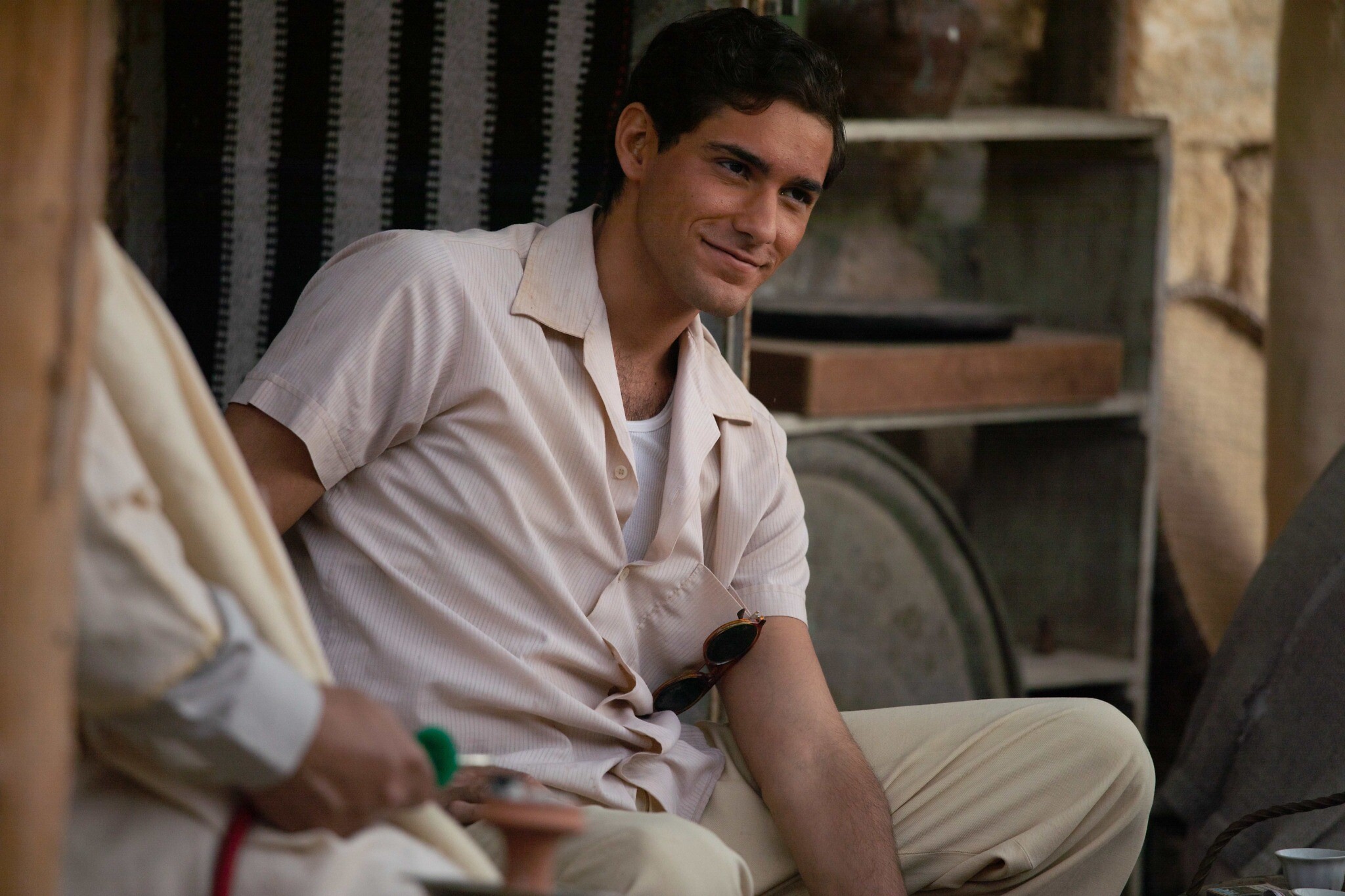
Nesher identified with Mira and Hassanein, and spreads empathy across the film. He was careful not to demonise Kovner, who had come through the Holocaust and tells the kibbutz that capitulation would push them back to where six million Jews died. His failure to apologise to Nitzanim was “inexcusable”, says the director, but he was otherwise a man doing what he thought was right tactically at the time. As a second-generation survivor, Nesher understood him.
“People underestimate the weight of the Holocaust on our shoulders. When your parents were in the Holocaust they were traumatised, but so are you. We’re completely stricken by that. I have a daughter who’s also a filmmaker and who’s about to make a first feature, and she’s afflicted with post-Holocaust trauma as well.”
When Mira sees a man’s tattoo in the film there’s no pity, just what appears to be quiet indifference. Nesher confirms that he is hinting at the way survivors were treated in Israel. For Mira’s generation and then his, the Holocaust “was presented to us as a catastrophe, but a somewhat shameful catastrophe,” he says. His parents’ generation were described as “lambs to the slaughter”, while his was the “never again” generation. “We were the ones who were going to be great Spartans and we were taught to distance ourselves from our parents who were Holocaust survivors. And that’s a horrendous sin.” Because of this, “I had tremendous guilt towards my father,” he confesses, revealing that he recently died in New York.”
Nesher fought in two wars, including the Yom Kippur War, during which he lost two of four close childhood friends.
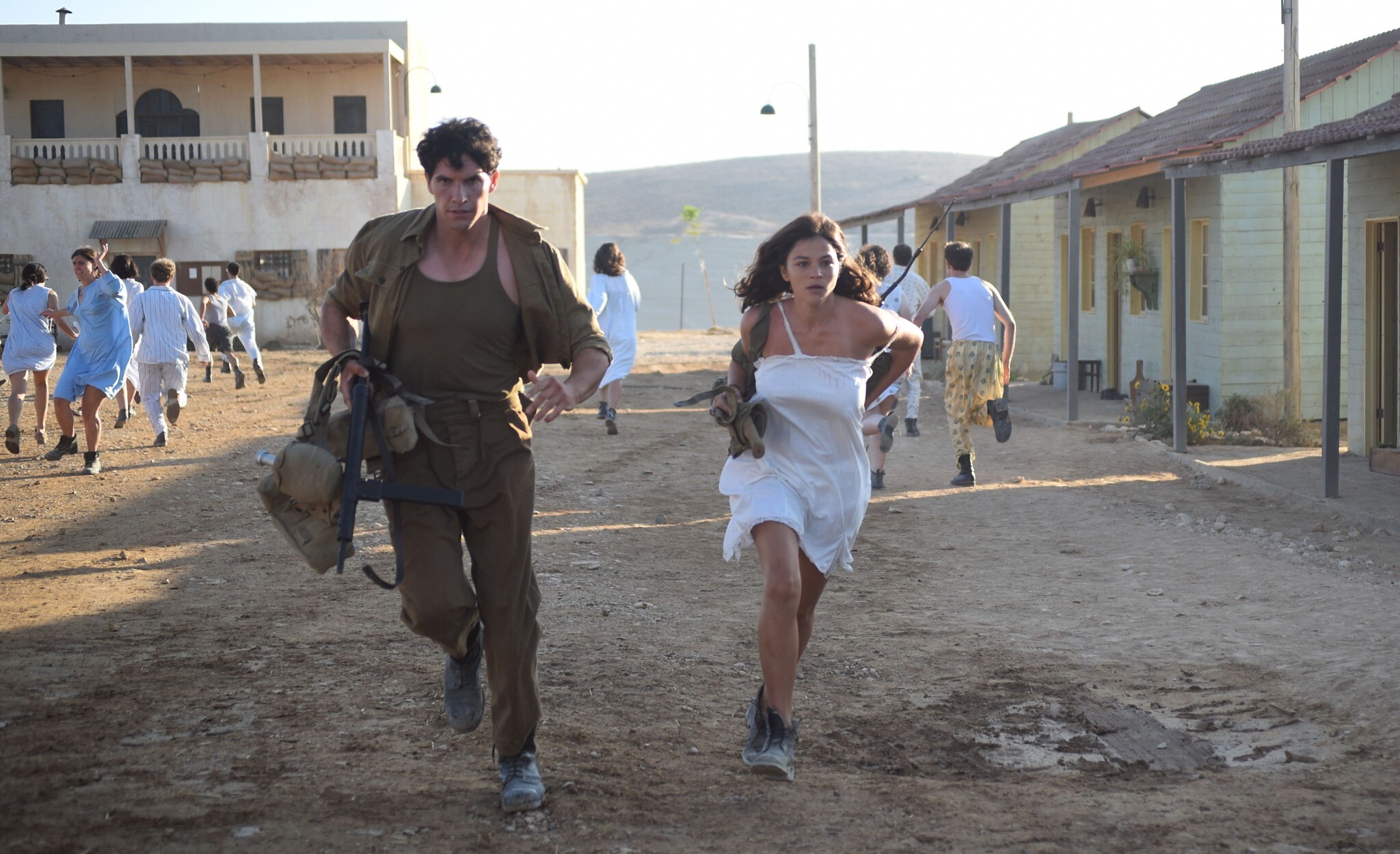
He “bears no malice” towards the Egyptians: “They were the same as us. They were as committed as us and they were as patriotic as us.” But, he continues, “War is a very traumatic experience, and if there’s anything you can do to prevent the next war, you really feel it’s your obligation.”
The key to peace, he believes, is to understand that every side has their own story – a word that he uses repeatedly and purposefully during our conversation – and that each story is as legitimate as the other.
“For me, the peace process will not start with politicians. This process will start with storytellers. And the way to make peace is to be able to embrace the other side’s version of history, even though it is not yours and even though you don’t necessarily agree with it.
“And I would hope that a movie like Image of Victory, that proclaims the legitimacy of the two conflicting stories, would be a small step towards an understanding on both sides.”
Attitudes may already be shifting. He has heard a rumour (unconfirmed at the time of writing) that next year’s 50th anniversary of the Yom Kippur War will include memorial services for both fallen Israeli and fallen Egyptian soldiers.
“That would be such a wise thing to do. Just to accept the legitimacy of the other side as human beings who fought for an idea that they embrace is the right idea. And this is the cause that the movie is trying to advance, too, in a way.”
Image of Victory can be watched on Prime Video, Sky Store, Apple TV+, YouTube and Xbox

Thank you for helping to make Jewish News the leading source of news and opinion for the UK Jewish community. Today we're asking for your invaluable help to continue putting our community first in everything we do.
For as little as £5 a month you can help sustain the vital work we do in celebrating and standing up for Jewish life in Britain.
Jewish News holds our community together and keeps us connected. Like a synagogue, it’s where people turn to feel part of something bigger. It also proudly shows the rest of Britain the vibrancy and rich culture of modern Jewish life.
You can make a quick and easy one-off or monthly contribution of £5, £10, £20 or any other sum you’re comfortable with.
100% of your donation will help us continue celebrating our community, in all its dynamic diversity...
Engaging
Being a community platform means so much more than producing a newspaper and website. One of our proudest roles is media partnering with our invaluable charities to amplify the outstanding work they do to help us all.
Celebrating
There’s no shortage of oys in the world but Jewish News takes every opportunity to celebrate the joys too, through projects like Night of Heroes, 40 Under 40 and other compelling countdowns that make the community kvell with pride.
Pioneering
In the first collaboration between media outlets from different faiths, Jewish News worked with British Muslim TV and Church Times to produce a list of young activists leading the way on interfaith understanding.
Campaigning
Royal Mail issued a stamp honouring Holocaust hero Sir Nicholas Winton after a Jewish News campaign attracted more than 100,000 backers. Jewish Newsalso produces special editions of the paper highlighting pressing issues including mental health and Holocaust remembrance.
Easy access
In an age when news is readily accessible, Jewish News provides high-quality content free online and offline, removing any financial barriers to connecting people.
Voice of our community to wider society
The Jewish News team regularly appears on TV, radio and on the pages of the national press to comment on stories about the Jewish community. Easy access to the paper on the streets of London also means Jewish News provides an invaluable window into the community for the country at large.
We hope you agree all this is worth preserving.
-
By Laurent Vaughan - Senior Associate (Bishop & Sewell Solicitors)
-
By Laurent Vaughan - Senior Associate (Bishop & Sewell Solicitors)
-
By Laurent Vaughan - Senior Associate (Bishop & Sewell Solicitors)
-
By Laurent Vaughan - Senior Associate (Bishop & Sewell Solicitors)


